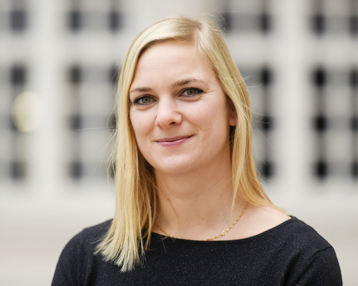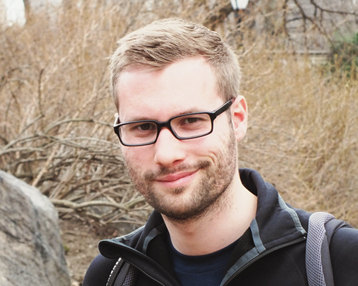A valuable comparison
Freiburg, Feb 16, 2018
How is a data protection breach handled in France? How will the German legal system evolve through the influence of international regulations? Which laws apply if a company goes bankrupt in Switzerland? In the trinational master’s program “Law” students attend classes at the University of Freiburg, Basel and Strasbourg to compare legislation in the neighboring border triangle countries. A series presents seven other international collaborations.

Photo: Corgarashu/Fotolia
For those who work as lawyers in a large law firm, company or NGO, they are often confronted with more than just one national legal system. Graduates of the master’s program “Law” are fully prepared to address these issues: They have examined legal questions from the Swiss, French and German perspective in three different universities, having learned comparatives methods and their practical applications.
A few kilometers, many insights
“The program is rather dense and unique in its current form,” says Simone Bemmann, program coordinator for Freiburg’s Faculty of Law. For the past ten years, the master’s degree program has been offered by the Universities of Freiburg, Basel and Strasbourg in the university consortium Eucor – The European Campus. Students attend classes at all three sites while writing their master’s thesis at one of them. “The students have the opportunity to make practical comparisons among three different legal systems – and they only have to travel a few kilometers to do it,” says Bemmann. After successfully completing the program, the graduates receive three different degrees: “Master of Laws” from Freiburg and Basel and the “Master Droit et études européennes” from Strasbourg.
However, the master's students must have been thoroughly versed in legal issues beforehand: the first state examination or a comparable degree is a prerequisite. In addition, applicants must have native speaking skills in German or French as well as a good working knowledge of the other language.
“We have a very high academic standard,” says Bemmann. The students have to select a concentration such as data protection law. “But then they not only have to compare the law in the three countries, they also have to focus on its prerequisites such as basic rights.” The program’s modules are divided into seven subcategories, spanning from the history of law to its Europeanization and internationalization to criminology and commercial and business law.
Flexible start
Along the way, the students get to know the differences among the three various university systems, starting with the different lecture periods: In Strasbourg the semester starts at the beginning of September; in Basel the so-called fall semester begins mid-September; in Freiburg the winter semester starts in mid-October. “You have to muddle through a bit, thereby gathering experiences along the way with the various administrative processes,” says Bemmann.
There is no standard period of study. Graduates can receive their degrees after just one year. According to Bemmann, however, three or four semesters are more realistic. Students can pursue their master’s degree before or after their clerkship – under exceptional circumstances even parallel to it. Some applicants already have several years of work experience such as in a law firm. “The master’s program is a full-time degree program,” emphasizes the coordinator. The three sites alone present the students with large organizational challenges. “You have to manage your time well.” Financial support for the recurring travel costs is possible through the consortium Eucor; tuition is free.
Nearly all applicants have previous experience in a foreign country, such as the Erasmus program, internships or during their clerkship. And most graduates land in a field that requires that they work with European or international legal issues. “They are in particular demand in the business sector,” says Bemmann, “especially here in the border triangle.”
Thomas Goebel
Trinational master’s degree program “Law”
● Enrollment is possible for both the winter and summer semester. Those interested should apply by June 15th for the winter semester and by December 15th for the summer semester.
● Classes are held at the Universities of Freiburg, Basel and Strasbourg.
For more information
 “After graduation, I wanted to stay in the Freiburg area – it is worth peering over the border. Sooner or later nearly everyone in the legal profession comes into contact with France or Switzerland. The classes in Strasbourg were particularly challenging. They required a great deal of flexibility because the class schedule kept changing. The diverse topics in the master’s program are great. Ultimately, I chose to pursue my degree in order to broaden my horizons.”
“After graduation, I wanted to stay in the Freiburg area – it is worth peering over the border. Sooner or later nearly everyone in the legal profession comes into contact with France or Switzerland. The classes in Strasbourg were particularly challenging. They required a great deal of flexibility because the class schedule kept changing. The diverse topics in the master’s program are great. Ultimately, I chose to pursue my degree in order to broaden my horizons.”
Sophie Geiger, master’s degree graduate
Photo: Patrick Seeger
 “In the time between my state examinations and my clerkship, I wanted to pursue a degree in the classic sense – taking a circuitous route and looking to the left and the right of me. During my legal studies, I didn’t really have a chance to do that. During the master’s program, I had an enormous range of subjects from which to choose, from international criminal law to legal history. I plowed through numerous topics for which I didn’t have the time previously. And I got a certain sense of what an education in law looks like in France and Switzerland.”
“In the time between my state examinations and my clerkship, I wanted to pursue a degree in the classic sense – taking a circuitous route and looking to the left and the right of me. During my legal studies, I didn’t really have a chance to do that. During the master’s program, I had an enormous range of subjects from which to choose, from international criminal law to legal history. I plowed through numerous topics for which I didn’t have the time previously. And I got a certain sense of what an education in law looks like in France and Switzerland.”
Moritz Kammerlander, master’s degree graduate
Photo: Dimitri Reinhardt

